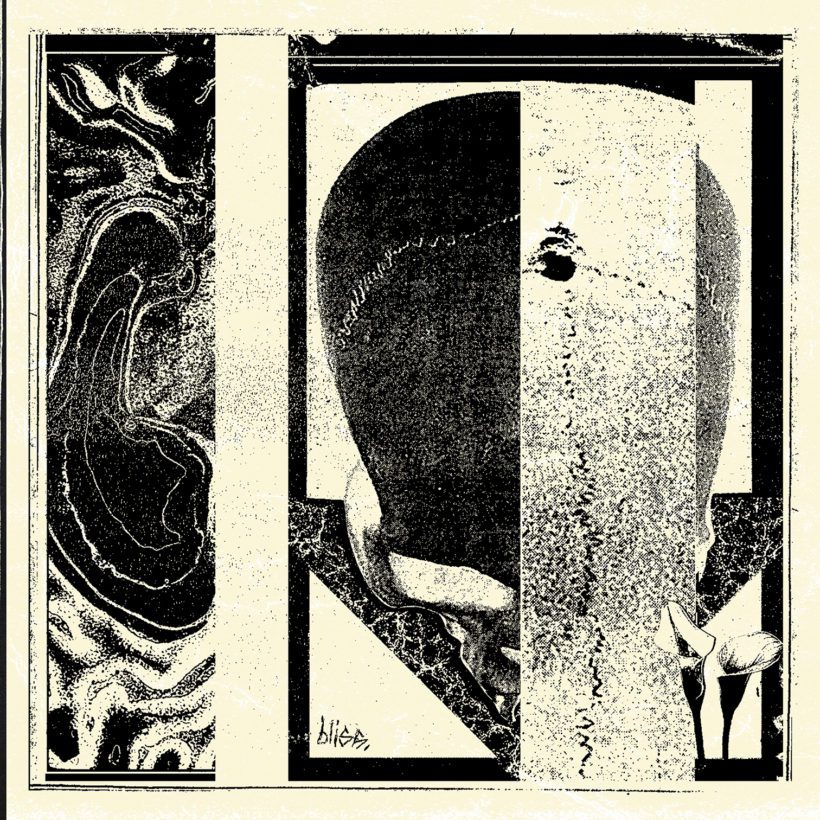
Philadelphia’s Hell to Pay are arriving in a rush of pulverizing metallic hardcore on their debut album, Bliss. Arriving in a torrent of noisy and violent riffs and breakdowns, Bliss won’t reinvent hardcore’s wheel, but it does an impressive job beating you to death with the one that’s already there.
Decibel caught up with various members of the hardcore upstarts to talk about Bliss to accompany an exclusive stream of the album. Hell to Pay will unleash Bliss on March 16.
Bliss is Hell to Pay’s first LP, as well as first new music in a few years. How do you think it represents the sound of the band for those who are previously uninitiated?
Calin Yenser: The thing about Bliss is that it was written and developed over the span of about a three-year period and I think that what it really represents is our growth since we put out our first bit. The initial mindset was to create obnoxiously aggressive music that avoided one dimensionality and wasn’t afraid to enter new territory, and we’ve definitely continued to embrace that mentality with Bliss. I think, as a band and as musicians, we’re very much still exploring and coming into our own and I’d like to think the chaos presented as Bliss is a sonic representation of us kind of writhing in our cocoon, digesting ourselves into a protein rich soup – reconstructing, or, outside the metaphor, at least finding the legs to. So, I know while we’re all kind of reveling in this completed project we’re also eager to move forward.
The album has a mixture of slow, heavy hardcore; fast, grinding songs; noise parts and moments that can’t be classified as any of those. Do the members of Hell to Pay listen to a lot of different music? What are the main influences at play on the album?
Keith Goldoni: The aggressive styles at the forefront; hardcore punk/grind/death metal/etc. are the foundation of our collective musical taste, but our individual likings definitely extend past the confines of metal and hardcore, and that will continue to influence our future material.
John DiStefano: Specifically, I was listening to a lot of Hatred Surge, The Body, Russian Circles, Rotten Sound, Entombed, and Godflesh.
Aaron is the vocalist of popular Philly hardcore outfit Jesus Piece, who are on the road a fair amount these days, and the rest of the members are in a number of other bands. How do you work around those other commitments to keep the band active?
KG: It helps that our relationships extend past being in bands together; we’ve all been friends for a long time, trying to make bands work, so we have a smooth line of communication. Nothing has really proven difficult yet because Jesus Piece is the only band with a heavy touring schedule, but if Hell To Pay gets busier after the release of the album, we may have to get innovative to keep all of our ducks in a row, so to speak.
Bliss has lyrics that tackle social issues, like social responsibility, greed in US institutions, politics and the like. Do you think it is an obligation of hardcore bands to take on social issues in their lyrics and at their shows
CY: Well I don’t know that I’d say it’s an obligation or anything, but I think that if you’re in the hardcore scene, you’re probably angry at something. so why not focus that anger into something constructive? I mean, if you want to go cathartic that’s fine too. You know, that was my shit growing up, that’s why I’m here – raw authentic emotion. You don’t see it enough these days – authenticity. Lyrically, it’s mostly vague threats or fictional feats of strength and achievement. There’s not a ton of substance. I’d say substance is your obligation as a hardcore band – there needs to be some form of substance. There’s enough surface level horseshit in mainstream media which is why you’ve chosen another channel, so don’t contribute to it with surface level cookie cutter horseshit. As cliché as it sounds, you say, “fuck you,” and go against the grain at every (constructive) opportunity. that’s the point… I’d say bliss is constructive catharsis.
What was the process of writing and recording Bliss like? Was it quick and painless, hard and drawn out?
CY: It was a pretty incredibly drawn out process, actually. We had plans to get what would have been some version of the record out in 2015. We had a handful of songs and ideas, some of which made it to Bliss in some way, but it just never came together. I think anything other than the process we all – Jared (Stimpfl, of Captured Studios) included – endured would have felt forced. I don’t think I’d describe it as hard, mostly just natural. Unfortunately, naturally drawn out and a bit painstaking but as art should be.







